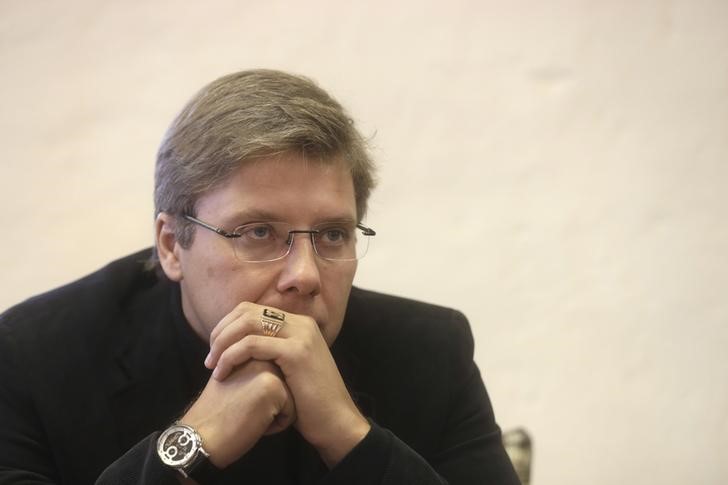By Alastair Macdonald and Aija Krutaine
RIGA (Reuters) - It's not so much the risk of conflict with Russia that worries the mayor of the Latvian capital Riga; it's the threat to jobs and investment as EU sanctions on Moscow rebound on the economy of the Baltic state.
Russia's annexation of Crimea and backing for separatist rebels in eastern Ukraine have prompted U.S. President Barack Obama to offer assurances that NATO will stand by its East European members, including Latvia, to prevent any attempt by Moscow to destabilise them.
But Riga Mayor Nils Usakovs, who like a third of Latvia's 2 million people is himself a native Russian-speaker, has other concerns on his mind.
Bounding over to a map of the historic Hanseatic port that covers a wall of his office in the picturesque old town, the 38-year-old leader of Latvia's biggest political party waves at huge dockyards and a rail artery that links Riga to Russia, bringing coal from as far as Siberia to Baltic shipping lanes.
"If they decide due to political reasons to switch to other terminals away from Latvia ... it is a problem for us," he told Reuters in an interview. Some 20,000 people work at the port and a further 8,000 on a railway that depends on Russian freight.
A new, 148-million-euro (116 million pounds) terminal half-financed by the European Union is at risk. "If the Russians decide they are not transiting the coal through Riga, most Latvian and European money is wasted," said Usakovs, whose mainly Russian-speaking Harmony Party is in opposition despite winning a quarter of seats in a national election in October.
EU sanctions have already hit trade with Russia and Moscow's ban on imports of food from the bloc has hurt Latvia's big dairy industry. The slump in the rouble, as lower oil prices squeeze Russia's economy, is also depriving Riga of tourist revenues.
For Usakovs, who spoke as Latvia began a six-month stint this week as president of the EU's ministerial councils, the pain inflicted on Russia is counter-productive as it only angers ordinary Russians.
He dismissed the argument supported by Latvia's hawkish centre-right coalition government that sanctions are necessary to push the Kremlin to cut a deal.
"We'll see whether trying to negotiate with an economically weaker Russia and - I hope not, but probably - a more unstable Russia will help us," he said.
In common with government officials, Usakovs feels that the risk of Russia intervening in NATO-member Latvia in the way Western powers accuse President Vladimir Putin of doing in Ukraine is lower that it may have been some months ago.
And he is anxious to play down the possibility of Russian-speakers following the example of Ukrainian rebels.
"We've got radicals on both sides. We've got Latvian radicals dreaming of Russians leaving the country, we've got Russian radicals dreaming of Russian tanks," he said.

But he added: "The absolute majority wants to see peace at home."